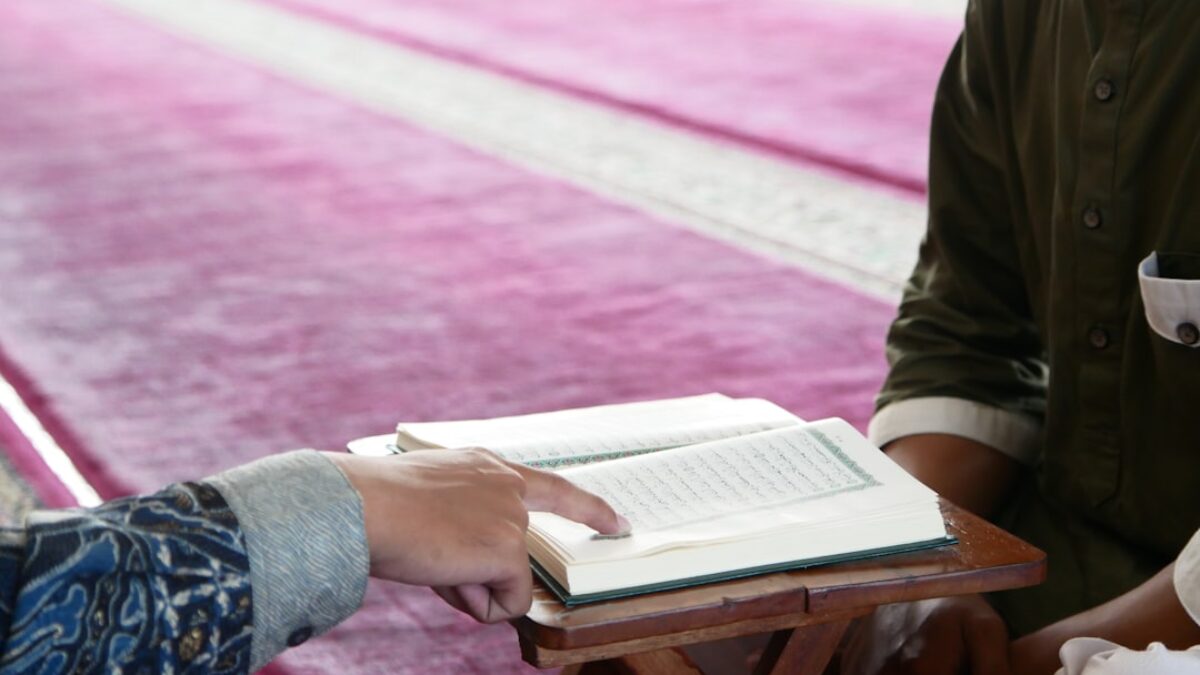In a world of 24-hour newsfeeds, algorithm-driven content, and rapidly shifting social norms, Muslim parents are asking one urgent question: “How do I raise children who love Allah, embody the Sunnah, and still thrive in the 21st century?” The task feels daunting, but Islamic tradition—rich with psychological insight, spiritual guidance, and timeless parenting models—offers a clear roadmap. This article distills classical scholarship, contemporary child-development research, and lived experience into proven, practical steps that modern Muslim families can start implementing today.
Understanding the Islamic Framework of Parenting
Tawḥīd-Centered Vision
Islamic parenting begins with an intentional focus on Tawḥīd—the absolute oneness of Allah. Unlike secular models that center the child’s self-esteem or social success, the Islamic paradigm places Allah at the center of every decision, conversation, and routine. When parents frame success as “pleasing Allah first,” they automatically anchor identity, morality, and long-term goals in a stable, divine reference point.
The Covenantal Relationship (Amanah)
Children are described in the Qur’an as a trust (amanah) from Allah (33:72). This legal-spiritual concept shifts the question from “How do I control my child?” to “How do I return this trust to Allah in the best possible condition?” The paradigm produces humility in parents and respect for the child’s intrinsic value as a khalīfah (vicegerent) on earth.
Stages of Nafs-Focused Development
Classical scholars mapped child development to the three states of the nafs:
- Nafs al-Ammārah (age 0-7): The impulsive soul. Emphasis on external discipline, loving boundaries, and ritual immersion.
- Nafs al-Lawwāmah (age 8-14): The self-reproaching soul. Emphasis on internalized conscience, guided choices, and mentorship.
- Nafs al-Mulhimah (age 15+): The inspired soul. Emphasis on independent moral reasoning, accountability, and service.
Key Components of Righteous Muslim Parenting
1. Spiritual Atmosphere at Home
Physical Cues
- Dedicate a “salah corner” in each room: prayer mat, mini-Qur’an stand, dhikr beads.
- Use visual calligraphy of key verses (e.g., 31:14, 46:15) to reinforce gratitude to parents.
Temporal Cues
- Adhāalarm on smart speakers; children pause games and recite the du‘ā after adhā.
- Weekly family “Sunnah night”: dates, milk, and storytelling of a Companion.
2. Purposeful Communication
The Prophet ﷺ taught a “three-layer” speech model:
- Affirmation: “I see you’re upset…”
- Teachable moment: “Our anger can push us away from Allah’s mercy…”
- Actionable du‘ā: “Let’s say ‘A‘ūdhu billāh’ three times and breathe slowly.”
3. Character-First Discipline
| Behavior Issue | Islamic Virtue Targeted | Prophetic Method |
|---|---|---|
| Lying | Sidq (truthfulness) | Story of Ka‘b ibn Mālik; write apology letter to Allah first |
| Screen addiction | Murāqabah (mindfulness of Allah) | 20-minute “khulwah challenge”: silent reflection with Qur’an recitation |
| Sibling rivalry | Īthār (preferring others) | “Gift swap” every Friday: each child gives away a beloved item |
4. Education That Integrates Dunya and Dī
Follow the “Tawḥīd Lens” across subjects:
- Science: Discuss photosynthesis → “Allah al-Khallāq designed every leaf as a solar-powered charity.”
- History: When studying civil rights, introduce Bilal ibn Rabāḥ as the first mu’adhdhin.
- Literature: Compare Shakespearean tragedy with the Qur’anic concept of qadar.
5. Digital Citizenship with Taqwā
- Create a “Family Tech Charter” signed by parents and children.
- Use apps like Muslim Kids TV for content filtering, but schedule monthly “Digital Detox Day” with hiking and dhikr in nature.
Benefits and Importance of Righteous Muslim Parenting
1. Psychological Resilience
Children raised with an Allah-centric worldview demonstrate lower anxiety and higher post-traumatic growth. Belief in qadar reframes setbacks as divine training, reducing victimhood mentality.
2. Social Connectivity
By practicing khidmah (service) from a young age, children develop empathy that transcends ethnic and socio-economic lines. A recent Muslim Youth Survey found teens who volunteered at the masjid food bank were three times more likely to maintain diverse friendships.
3. Eternal Impact (Sadaqah Jāriyah)
The Prophet ﷺ said, “When a person dies, his deeds end except for three…” One of them is a righteous child who prays for him. Parenting thus becomes a long-term investment in one’s own akhirah.
Practical Applications: Real-World Scenarios
Morning Rush: Getting to School Without Losing Īmā
- Pre-plan the night before: clothes folded facing qiblah, shoes by the door.
- Audio du‘ā playlist in the car: “Rabbi zidnī ‘ilmā” on the way to school, “Allāhumma inni as’aluka ‘ilmāāfi‘ā” on the way back.
- Micro-intentions: “We’re leaving early so we can open doors for others and earn ḥasanāt.”
Handling Peer Pressure in Middle School
Case Study: 12-year-old Amina is invited to a mixed-gender birthday party.
- Empathy first: “I know it feels unfair that others are going.”
- Value clarification: Use the “Would the Prophet ﷺ smile at this?” litmus test.
- Alternative reward: Host a “girls-only spa night” with halal nail polish and Qur’an journaling.
Teenage Crisis of Faith: The College Transition
Action Plan:
- Secure a campus mentor six months before move-in day via MSA alumni network.
- “Dorm survival kit”: compact prayer rug, foldable turbah (for Shia families), Qur’an app with tafsīr offline.
- Monthly family book club on Zoom: read “Reclaim Your Heart” together and discuss.
Frequently Asked Questions
What age should I start teaching my child Qur’an memorization?
Begin phonetic exposure at age 2-3 through nursery rhymes that use Qur’anic vocabulary. Formal memorization (ḥifẓ) can start once the child can sit for 10-15 minutes with pleasure—typically age 4-6 for most children, but readiness varies. Prioritize love over pace; the Prophet ﷺ warned against making the Qur’an a source of distress.
How do I balance Islamic schooling with academic excellence?
Use “integrated scheduling”:
- Early morning (Fajr-7 a.m.): Qur’an + Arabic.
- School day: secular curriculum.
- After ‘Asr: STEM enrichment framed with Islamic ethics (e.g., robotics for water wells in Yemen).
Remember, the early Muslim polymaths excelled in both ‘aqli and naqli sciences; depth in one reinforces the other.
My teenager refuses to pray. What should I do?
- Investigate root causes—bullying at school, spiritual doubts, or mental health issues.
- Re-establish connection through service: volunteer at a shelter together; salaah often follows softening of the heart.
- Set non-punitive boundaries: “We don’t fund data plans for phones during prayer time,” delivered with gentle firmness.
Is it permissible to use “gentle parenting” techniques?
Yes—when gentle does not mean permissive. The Prophet ﷺ never struck a child and used playful distraction, natural consequences, and emotional coaching. Modern “gentle parenting” aligns as long as it upholds clear Islamic boundaries.
How can single Muslim mothers raise sons without male role models?
Leverage the village principle:
- Register sons in weekend karate classes at the masjid where the instructor is a practicing brother.
- Schedule quarterly camping trips with an “uncle pool”—trusted men in the community who rotate presence.
- Use media smartly: documentaries on Imam Ahmad and Malcolm X for heroic male archetypes.
What are signs my child may be drifting from Islam, and how early can I detect them?
Early warning indicators:
- Reluctance to say “al-ḥamdu lillāh” spontaneously.
- Drop in saying basmalah before eating.
- Preference for music with explicit lyrics over Qur’an recitation.
Intervene with curiosity, not interrogation: “I noticed you skipped basmalah today—everything okay?”
How do I handle non-Muslim grandparents who undermine Islamic rules?
Apply the “3 C’s”:
- Clarify boundaries privately with grandparents: “We don’t serve gelatin candies, but we’ll bring halal marshmallows.”
- Compensate their love language: invite them to the mosque’s interfaith day so they feel included.
- Consistency: Children thrive on predictable rules; kindly but firmly maintain them across households.
Conclusion
Raising righteous Muslim kids is neither nostalgic fantasy nor utopian dream—it is a systematic, spiritually informed process rooted


Post Comment